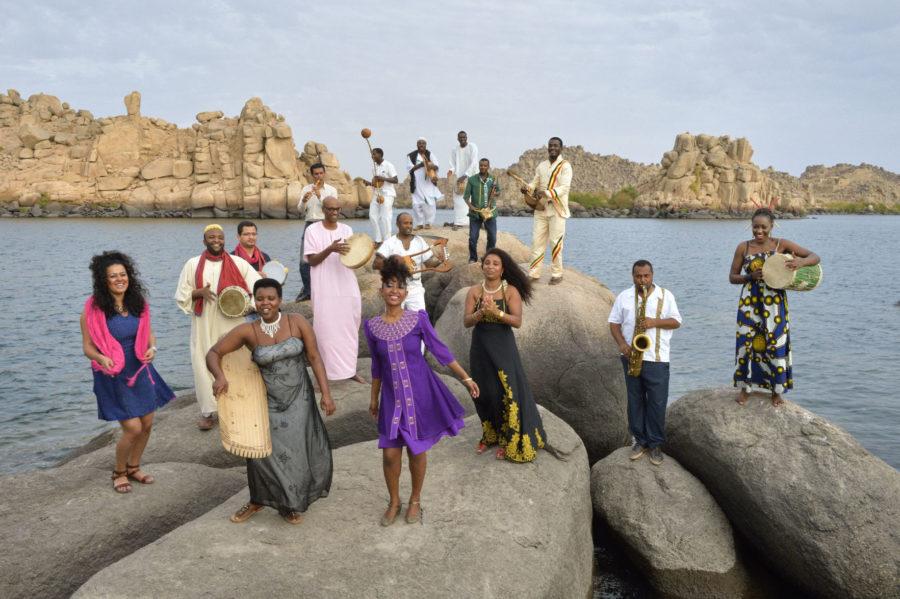Bringing music from the Nile
Nile Project Aswan, Egypt, March, 2014. The Nile Project was founded in August 2011 by Egyptian ethnomusicologist Mina Girgis and Ethiopian-American singer Meklit Hadero to address the Nile basin’s cultural and environmental challenges using an innovative approach that combines music, education and an enterprise platform. www.nileproject.org
March 5, 2015
Conflict over the distribution of the world’s longest river continues to raise tension in North Eastern Africa, as countries dispute over the distribution of the landmark’s resources.
Despite the conflict, The Nile Project, a performing arts group based in Africa, shares their hopes for the Nile Basin through music and will bring their message to campus at the Krannert Center for Performing Arts on Friday at 7:30 p.m.
The project was founded in 2011 and aims to promote diversity and cooperation within various countries. It is compiled of artists, professional musicians, instruments and languages from 11 different Nile countries.
Monique Rivera, academic engagement liaison for Krannert, believes that The Nile Project performance is an important event for the University. Rivera works with staff and students to help increase engagement and interaction within the arts and said The Nile Project has a lot to offer to the campus and the community.
“The diversity and depth of the topics like geopolitics, the environment and the well-being of the people who share the Nile River Basin are critical issues, and being able to do that though music and dance is a beautiful thing,” Rivera said. “This will give people an opportunity to experience how the arts intersect with the issues of our times on local and international levels. Using the arts to bring these issues to the surface offers a global approach in raising awareness.”
Get The Daily Illini in your inbox!
Mina Girgis, CEO and president of The Nile Project, said he was inspired to create the project after attending an Ethiopian concert in Oakland.
“This is a musical composition among the people sharing the river basin, and it’s getting them to become a little bit more interested in each other’s culture, and to start seeing the big picture of how we’re all connected through the river,” Girgis said. “I was wondering what I could do to be apart of what was happening in Egypt.”
The project had their American debut in January, with a four-month cross country tour. Their goal is to unite and educate University students on protecting and sustaining their own ecosystems.
“The musicians get to teach each other about their musical traditions and also collaborate to compose music that kind of merges these different traditions.” Girgis said.
The Nile Project has made various impacts in the U.S and in Africa, but as Girgis’ explained, The Nile project’s primary focus is the Nile basin and inspiring the communities surrounding it. However, The Nile Project also hopes to educate people in the U.S. about water sustainability.
“We want to get people to think about the issues in the Nile Basin, and localizing students that are interested in these African issues and can contribute in one way or the other to the sustainability of the Nile and coming up with some innovations or some new ideas that can solve some of these problems,” Girgis said.
For some students, seeing The Nile Project live will be an opportunity to connect with their roots and own identities.
Khaled Alshehri, graduate student in Engineering, is interested in what The Nile Project has to offer on Friday.
“I speak Arabic and it will be exciting to see a group that can perform in my language,” Alshehri said.
The Nile Project will also host a panel discussion Thursday at 5:00 p.m. in the SDRP, titled “The Nile and African Identity.”
“We want this opportunity to give students a chance to reflect on their own ecosystems,” Girgis said. “It’s kind of a combination of thinking globally, thinking locally and letting them see the connection between those.”







